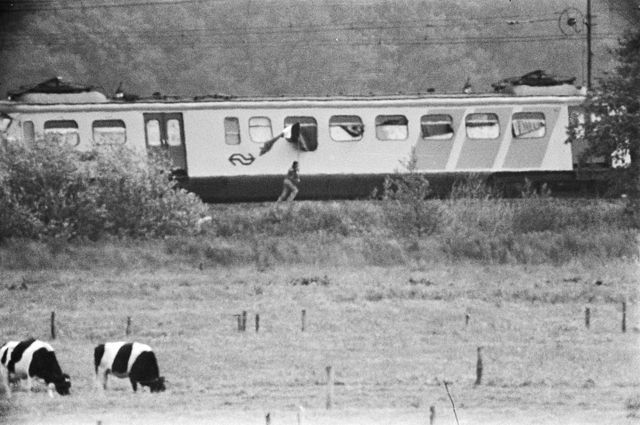Court clears marines for killings in 1977 Moluccan train hijacking


There is not enough evidence that marines ending a train hijacking by Moluccan activists in 1977 were told to kill all the hijackers, judges said on Wednesday, clearing the Dutch state of responsibility for the deaths.
Relatives of two of the nine Moluccans who hijacked the train had claimed the hijackers were executed when they were already severely wounded and not capable of offensive action.
But the court in The Hague ruled that the marines had to take decisions in the heat of the moment and in an extremely threatening situation. Lethal violence is justified if the person honestly believes that they are in danger, the court said.
Lawyer Liesbeth Zegveld, who represented the relatives of Max Papilaja and Hansina Uktolseja in court said immediately she would appeal. ‘This ruling is carte blanche to kill,’ she told reporters after the hearing.
There were a number of violent actions by radicalised young Moluccans in the 1970s. At the same time as the hostage taking at De Punt in Groningen, another group took a number of school children and their teachers hostage in a school in Bovensmilde. In this case the hostage takers surrendered and no one was hurt.
The frustration of many in the Moluccan community goes back to the way the post-war government treated the soldiers who had fought for the Dutch in its former colony of Indonesia.
In 1951 some 12,500 Moluccan soldiers and their families were shipped to the Netherlands and housed in barracks, as a temporary measure. They were then discharged from the army, not allowed to work and given pocket money.
The Dutch government, however, never made any effort to help the Moluccans establish their Republik Maluku Selatan (RMS) which the Indonesian government refuses to recognise it to this day.
Thank you for donating to DutchNews.nl.
We could not provide the Dutch News service, and keep it free of charge, without the generous support of our readers. Your donations allow us to report on issues you tell us matter, and provide you with a summary of the most important Dutch news each day.
Make a donation